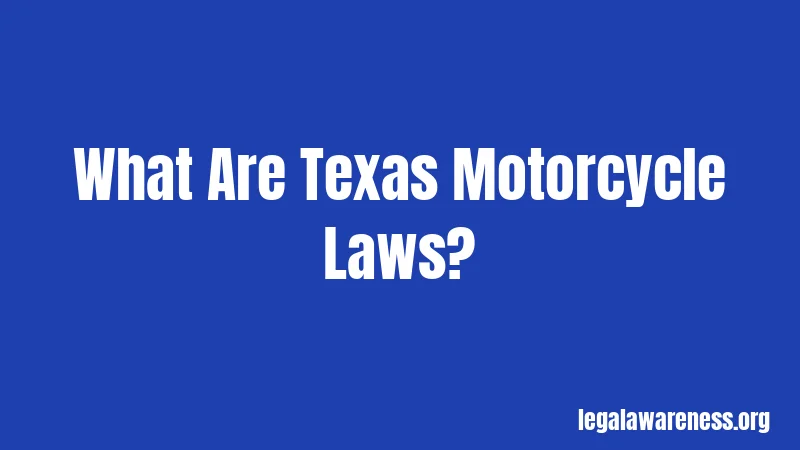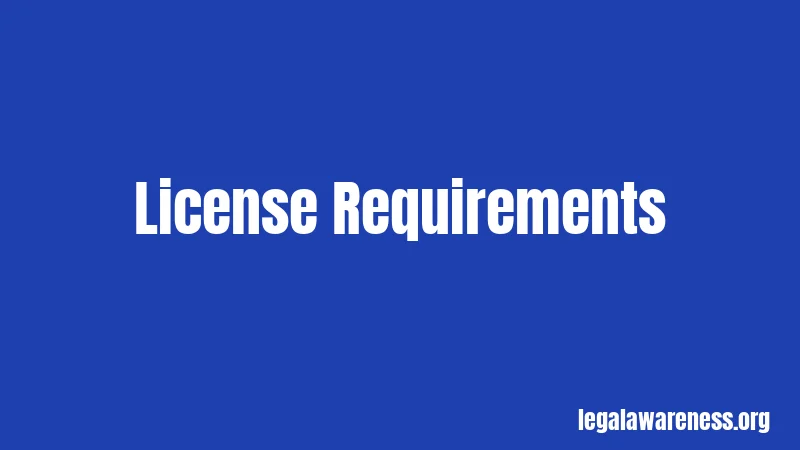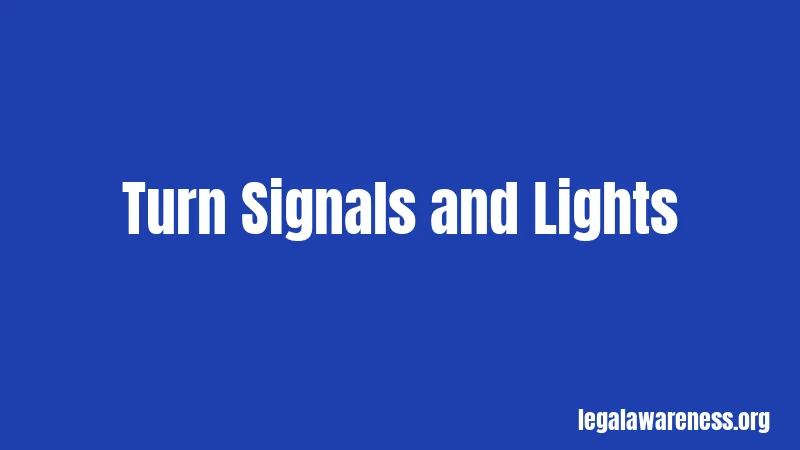Motorcycle Laws in Texas (2026): Everything You Legally Need to Know
Most people think they know the motorcycle rules. Then they get pulled over. Texas takes its motorcycle laws seriously, and the penalties can catch you off guard. Let’s break down exactly what you need to know to ride legally in Texas.
Whether you’re a long-time rider or just thinking about getting a bike, these laws apply to you. Some might surprise you. Some could affect your wallet big time. Stay with me here.
What Are Texas Motorcycle Laws?

Think of motorcycle laws as the specific rules that apply only to two-wheeled vehicles. They’re different from regular car laws because bikes have unique safety needs. Texas has strict guidelines about helmets, safety gear, license requirements, and how you can operate your motorcycle.
These laws exist to keep you safe. Honestly, this part makes sense.
Helmet Requirements
Texas law says you must wear a helmet. Not just any helmet, though. It has to meet DOT standards. That’s the Department of Transportation’s safety rating. Your helmet needs proper padding, a chin strap, and real protection.
Now here’s where it gets interesting. There’s actually an exception. If you’re 21 or older and you have at least $10,000 in medical insurance coverage, you can ride without a helmet. Pretty straightforward, right? Most people don’t know about this exception.
But wait, there’s a catch. You still need to carry proof of that insurance with you while riding. A hospital bill won’t cut it. You need active, current coverage documented in writing. Get that documentation and keep it in your wallet.
Riders under 21 have no choice. Helmets are mandatory, period. No exceptions. No insurance workaround. The law is pretty clear on this one.
Wondering what counts as a proper helmet? It needs to be a full-face or three-quarter design. Open-face helmets are risky but legal, as long as they’re DOT approved. Just make sure it meets the standard.
License Requirements

You need a special motorcycle license in Texas. This isn’t just a regular driver’s license with a motorcycle endorsement tacked on. Well, actually it is, but here’s what that means practically.
To get a motorcycle endorsement on your license, you have a couple of options. You can take the written test and the riding skills test at the Texas Department of Public Safety. Or you can take an approved motorcycle safety course. The course route is honestly pretty popular because you skip the DPS riding test.
The Motorcycle Safety Institute and Harley-Davidson Riding Academy are both approved. There are other courses too. After you complete an approved course, you get a certificate. Take that certificate to the DPS, pay the endorsement fee, and you’re set.
You also need a valid license to operate a motorcycle. That basic driver’s license thing still applies. If your license is suspended or expired, you can’t legally ride. This one’s straightforward but important.
Safety Equipment Requirements
Helmets are just the beginning. Texas wants you protected. Here’s what else you need.
Eye protection is required. Goggles, face shield, or windshield all work. The point is keeping bugs, wind, and debris out of your eyes. Without eye protection, you’re breaking the law. Some riders try to skip this. Don’t be one of them.
Your motorcycle must have mirrors. Both sides. You need to see what’s behind and beside you. Mirrors aren’t just for safety, they’re legally required. Missing one mirror and you could face a ticket.
Handlebars have height limits. They can’t be above your shoulders when you’re sitting on the bike. This might seem random, but it affects how you control the motorcycle. Illegal handlebar heights aren’t super common to get ticketed for, but technically they’re against the law.
Your bike needs functional brakes on both the front and rear wheels. This isn’t optional. Brakes need to work properly and meet specific performance standards. If your brakes are sketchy, get them fixed before riding.
Turn Signals and Lights

Here’s the thing about signals. Your motorcycle must have working turn signals. Both front and back. They need to be amber, the right brightness, and flashable. If one burns out, you’re technically in violation while riding around.
Headlights are required. You need one. It should work during the day and at night. Some riders run their headlight all the time for visibility. That’s actually smart from a safety standpoint.
Taillight is mandatory. Red, required brightness, has to be visible from a certain distance. It works with your brakes to signal other drivers. Honestly, lights are one of the easiest things to maintain on your bike.
You also need a functional horn. This one surprises people. Your motorcycle horn actually needs to be loud enough to warn others. A little bell-type horn won’t cut it legally. Texas expects real audible warning devices.
Riding Restrictions
Okay, pause. Read this carefully. Texas has some specific rules about how you operate your motorcycle.
You cannot ride between lanes. Lane splitting is illegal in Texas. Period. Even in heavy traffic, even if it seems safe, you can’t do it. This is one riders get confused about because it’s legal in some states. Not Texas.
You need to use one hand to hold the handlebar while riding. You have to maintain steering control at all times. This means no hands-free riding, no extreme stunts, no letting go of the bars. One hand minimum, always.
Passengers need their own seat. No sitting someone on your gas tank or back fender. They need a designated passenger seat. And passengers need footrests. The rider’s feet get the pegs, passengers need their own. Passengers also need to keep their feet on those rests while moving.
Your feet need to be on the footrests while riding. You can’t put your feet up on the handlebars. You can’t drag your feet down the road. Feet stay on the pegs. This affects your control and your balance.
Speed and Traffic Laws
This one’s obvious but important. Texas speed limits apply to motorcycles just like cars. You have to follow posted limits. Highway speeds, residential speeds, all of it.
Running red lights is illegal. Running stop signs is illegal. Speeding is illegal. These all apply equally to motorcycle riders. Honestly, motorcycles make speed violations even more serious because you’re less stable at high speeds.
You must maintain a safe distance from other vehicles. The general rule is three seconds behind the car ahead of you. On a motorcycle, this matters even more because you can’t brake as hard as a car.
Reckless riding can get you charged with traffic violations. Stunts, wheelies, racing all count. These can result in serious penalties. Most riders who get charged with reckless riding didn’t think they’d get caught. They did.
Required Documentation
When you ride, you need to carry specific documents. Not having them can get you a ticket.
Your motorcycle endorsement on your driver’s license has to be with you. This proves you’re legally allowed to ride. Police will ask for it. It’s the first thing they check.
Your motorcycle’s registration has to be in the bike. Not at home, in the bike. This applies whether the bike is titled to you or someone else. The registered owner needs the registration available.
Insurance proof is required. You need liability insurance minimum. Texas requires it by law. Keep an insurance card in your wallet. That’s your proof.
Your motorcycle title needs to be kept somewhere safe, but it doesn’t have to ride with you. Police might ask to see it at home or they might go check it at the DMV. But registration is what you carry on the bike itself.
Helmet Safety Standards
Not all helmets are created equal. DOT approval matters. Your helmet needs that little DOT sticker on the back. That means it meets federal safety standards.
Snell certification is even stricter than DOT. Some helmets have both. If you want maximum protection, look for Snell certified helmets. They’re tested more rigorously. They’re worth the investment.
Never buy a used helmet if it’s been in a crash. Even if it looks fine, internal damage can mean it won’t protect you properly. Replace any helmet after an accident.
Make sure your helmet actually fits. It should be snug but not painful. If you can roll it forward or backward, it’s too loose. A properly fitting helmet might just save your life. This isn’t a guess, it’s actually documented.
Passenger Laws
Can you carry a passenger? Yes, but rules apply.
Your bike needs to have a passenger seat. No exceptions. Aftermarket seats work fine. But an actual seat designated for passengers is required.
Passengers need to be at least 14 years old? Nope, that’s actually not a Texas rule. There’s technically no age minimum for passengers in Texas. This surprises most riders.
Passengers must wear helmets. They have to follow the same helmet requirements as riders. If they’re under 21, helmets are mandatory. If they’re 21 or older, they can use the insurance exception if you’ve given them documented proof. Trust me, the liability issue here is serious.
Passengers need footrests. If your bike doesn’t have passenger footrests, you can’t legally carry someone. Adding footrests is inexpensive insurance against tickets and liability.
Passengers need to hold on to you or the designated grab handles. They can’t hold a phone, can’t hold luggage, can’t balance something while riding. Both their hands need to stay engaged with the bike.
Daytime Running Lights
Wait, it gets better. Here’s where it gets interesting. Texas doesn’t require you to ride with your headlight on during the day. Most riders do anyway. It’s smart safety practice.
But during dusk, dawn, and night, headlights are mandatory. Turn them on as soon as the sun gets low. Don’t wait until it’s completely dark. Visibility matters, and the law requires it.
Some riders modify their bikes with underglow lights or neon. Underglow lights are actually illegal in Texas. The law specifically prohibits them. Police can ticket you for underglow, and it’s not worth the legal fight.
Penalties for Breaking Motorcycle Laws
Okay, here’s where it gets serious. Violating motorcycle laws in Texas has real consequences.
Riding without a helmet can cost you up to $200. That’s a fine. But the bigger issue is if you crash. Your medical bills might not be covered under certain circumstances if you weren’t wearing required safety gear. Insurance might have grounds to deny claims.
Not having proper licensing can result in fines up to $200. A suspended or revoked endorsement can mean temporary loss of riding privileges. Getting busted for riding without a valid endorsement stays on your record.
Operating without a motorcycle endorsement when required can be charged as driving without a license. This is more serious than it sounds. It can affect your insurance rates dramatically.
Reckless riding, stunts, and traffic violations can result in fines ranging from $100 to several hundred dollars. Criminal charges might apply if someone gets hurt. This isn’t just about money, it’s about your criminal record.
Failure to carry required documents can each result in separate violations. No helmet, no license, no registration, no insurance. Each one is its own ticket.
Accumulating violations can result in license suspension. Too many traffic violations in a certain period, and the state suspends your motorcycle endorsement. You can’t legally ride during suspension.
Special Circumstances
Some situations have unique rules. Let’s talk about a few.
Modified bikes get extra scrutiny sometimes. If your modifications don’t meet noise standards, you can get ticketed. Texas has noise limits. If your bike is too loud, that’s a violation. Some custom exhausts put bikes over the legal limit.
Off-road motorcycles (dirt bikes) have different rules. They can’t be ridden on public roads unless they meet street legal requirements. Having an off-road bike on the highway is illegal. You need proper street legal equipment if you want to ride on pavement.
Mopeds and motorized bicycles fall into a different category sometimes. Honestly, this one’s tricky. If it’s under 50cc and slower than 30mph, it might be considered a moped. Mopeds have fewer requirements. But if it’s faster or bigger, it’s treated like a regular motorcycle. The gray area here can be confusing.
Trike registration might be different. Three-wheeled motorcycles sometimes need different endorsements. Check with the DPS if you’re considering a trike. The rules aren’t the same as two-wheeled bikes.
Restricted lane riding during certain hours. Some cities have restricted HOV lanes. Most don’t allow motorcycles in HOV lanes, even with two people. Check local ordinances where you ride.
How to Stay Legal
The simplest way to stay out of trouble is preparation. Get your endorsement first. Don’t skip this step. The DPS testing is straightforward, and approved safety courses make it even easier.
Buy proper safety gear. A good helmet isn’t expensive compared to hospital bills. Eye protection, gloves, jacket, these all matter. Real protection beats looking cool.
Maintain your bike. Keep lights working, signals functional, brakes solid. Five minutes a month checking basic stuff prevents most violations. A quick walk-around takes almost no time.
Carry your documents. Registration, license, insurance. Keep them in an accessible spot. Police need to see them, and you need them ready.
Follow traffic laws. You have the same rules as cars. That means speed limits, traffic signals, safe following distances. No special treatment applies to motorcycles legally.
Watch your riding style. No stunting, no excessive speeding, no lane splitting. These draw police attention and create serious liability. Ride smart.
Keep current insurance. Liability coverage is required. It protects you and others. Getting pulled over without proof is a violation. Keep that card with you.
Frequently Asked Questions
Can I ride my motorcycle with my regular driver’s license? No. You need a motorcycle endorsement on your license. Riding without the endorsement is illegal. Get to the DPS and get it added.
What if I’m stopped by police without my registration? You’ll get a ticket. Possibly more than one. Registration absolutely needs to be in your bike. No excuses accepted here.
Is lane splitting legal in Texas? No. Not ever. Even if traffic is stopped. Even if it seems safe. Lane splitting is illegal. Riders get ticketed for this regularly.
Can my 10-year-old ride as a passenger? Technically there’s no age minimum in Texas law. But practically, they need to reach the footrests and reach you to hold on. Plus, your insurance might have restrictions. Check with your insurance company on this one.
What happens if I get a ticket for no helmet? You pay the fine. It goes on your record. If you get multiple safety violations, your motorcycle endorsement can be suspended. Treat these seriously.
Do I need both headlights on, or just one? Just one. But many riders run both. It increases visibility and makes sense from a safety standpoint. Your bike needs at least one functioning headlight legally.
Can I modify my exhaust? You can modify it, but it needs to stay within noise limits. Excessively loud exhausts are ticketable violations. Test your modifications and keep them reasonable.
What’s the penalty for riding without a license endorsement? It can be charged like driving without a license. Fines around $200 to $500 are typical. Suspension of riding privileges can follow. This is serious enough to make the DPS test worth taking.
Can I carry cargo on my motorcycle? Yes, but it needs to be secured properly. Cargo can’t interfere with your control or a passenger’s safety. Make sure whatever you carry doesn’t block lights or obscure vision.
What if my bike fails safety inspection? You have to get the problems fixed. Then your bike needs reinspection. A failed inspection means you can’t legally ride until it passes.
Final Thoughts
Texas motorcycle laws are straightforward once you know them. The main things are straightforward: get licensed, wear proper gear, maintain your bike, carry documents, and follow traffic laws. It’s not complicated.
Most violations come from riders who simply didn’t know the rules. Now you do. Use that knowledge. Ride responsibly.
The penalties for violations aren’t worth the risk. Neither are the safety risks. Helmets, proper gear, and safe riding keep you and others safe. The law supports this for good reason.
Stay informed, stay safe, and when in doubt, check with the Texas Department of Public Safety or ask a legal professional. Now you know the basics. Go ride smart.
References
Texas Department of Public Safety Motorcycle Safety Information https://www.dps.texas.gov/
Texas Transportation Code Chapter 502 (Motorcycle Operation) https://statutes.capitol.texas.gov/Docs/TN/htm/TN.502.htm
Texas Motorcycle Safety Course Information https://www.dps.texas.gov/section/vehicle-titles-and-registration/motorcycle-safety-course-instruction
Motorcycle Safety Institute (MSF) https://www.msf-usa.org/
NHTSA Motorcycle Safety Resources https://www.nhtsa.gov/road-safety/motorcycle-safety
